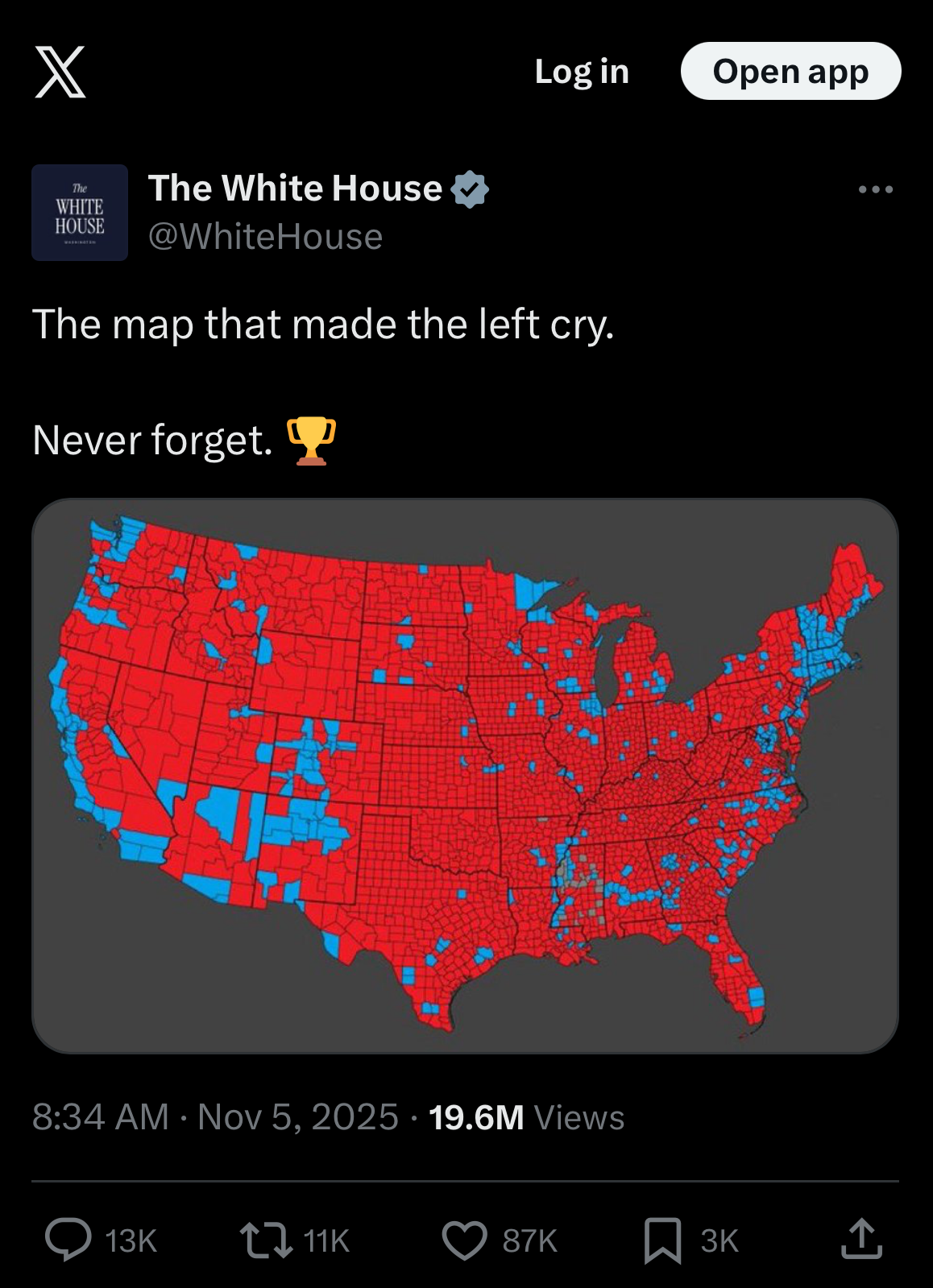Data Theater: What McKinsey's AI Report Actually Says (And What LinkedIn Gurus Won't Tell You)
McKinsey's latest AI research is everywhere on LinkedIn: "57% of jobs automated! $2.9 trillion opportunity!" But the viral posts are cherry-picking stats and stripping context. We read the actual 60-page report. Here's what decision-makers need to know instead.
The New Compliance Challenge Hiding in Your Optimization Stack
New York became the first state to require businesses to disclose when algorithms use personal data to set prices. The law took effect November 10, 2025, survived a constitutional challenge, and is being actively enforced. California is taking a different approach through antitrust law. Multiple other states have pending legislation. This is following the exact same trajectory as GDPR → state privacy laws, creating a compliance patchwork with no federal preemption in sight.
We Asked 3 LLMs to Build a Data Viz. Here's What Happened.
If you've been on LinkedIn lately, you've probably seen your fair share of posts about how "AI will replace your analysts!"
"ChatGPT just made my whole data team obsolete!"
We got curious. Not about whether AI can theoretically do analysis, we know it can be a very useful tool, but whether it can deliver an actual work product. The kind of thing a marketing director might hand to their exec team. So we ran a simple test.
How to spot when someone cherry-picks data to tell you what they want you to believe.
We seen it used on several Subreddits, it made rounds on Facebook, and of course it has been shared ad nauseam by LinkedIn thought-leaders. But do the charts, as one poster on LinkedIn put it, make it obvious that we are not in a bubble?
The charts seems legit, although they have been so overshared at this point the pixel quality has clearly degraded. The numbers seem authoritative. The argument feels data-driven.
But is it obvious?
Let's break down exactly what's going on here, and more importantly, how you can spot similar red flags in any analysis you encounter.
The claim.
“If this were a bubble, we'd see massive cash burn and unsustainable growth. But the numbers show real adoption, real revenue, and real productivity. What matters is net profit growth, something that frankly wasn't there at all in the dot com bubble. This is what separates AI from past 'bubbles'."
The Map That Never Dies: Why This Misleading Electoral Visualization Still Works in 2025
The White House shared a viral electoral map that's been debunked for a decade. Here's why geographic county maps systematically misrepresent election results and why they'll never die.
Building Your First Optimizely Opal Custom Tool
Optimizely Opal's Custom Tools feature lets you extend the Opal AI agent's capabilities by connecting it to your own services and APIs. In this guide, we'll walk through creating a simple custom tool from scratch, deploying it to the cloud, and integrating it with Opal.
By the end of this tutorial, you'll have a working custom tool that responds to natural language queries in Opal chat. We'll keep it straightforward, no complex integrations, just the essentials you need to get started.
You Don't Need to Be an Analyst to Think Like One
I need to tell you something that might change how you see yourself: you already have the capacity to be an analytical thinker. You don't need a statistics degree. You don't need to know how to query a database. You don't need to become an analyst.
Welcoming Our Newest ETSU Intern: Wambui Kang'ara
For Wambui, choosing 33 Sticks wasn't just about fulfilling an internship requirement, it was about finding the right environment for meaningful growth. With her experience, she sought a boutique agency with specialized offerings and a reputation for excellence.
"At this stage in my career, joining a boutique agency felt essential, somewhere with a tailored service offering and a reputation for excellence. I wanted more than just 'checking the box' for my master's internship, I wanted an enriching, really focused experience that truly aligned with my goals."
Perhaps most importantly, she was drawn to our people-first philosophy. "Success to me, is about building with integrity and people at the center. That people-first approach made me confident this is the right place to grow and receive invaluable mentorship."
When Data Becomes Disinformation: A Call for Ethical Analytics
Disinformation is not confined to politics or public health, it lives wherever data can be bent to serve an agenda. Analysts hold a unique responsibility as translators of data into action.
When we strip away context or selectively frame numbers, we risk becoming part of the same machinery that erodes public trust.
At 33 Sticks, we believe ethics cannot be optional. Our manifesto commits us to objectivity, transparency, and context because without objectivity, the true value of data is lost.
Why Data Teams Are Sabotaging Their Own Strategic Influence
For the past fifteen years, i’ve worked with data practitioners across industries, retail, healthcare, tech, finance, entertainment. Different businesses, same story. Teams feel frustrated and underappreciated. They’re buried in requests for reports and dashboards, treated as service providers, and excluded from strategic conversations.
The complaints are familiar:
“We don’t have a seat at the table.”
“The business doesn’t respect us.”
“Leadership ignores our insights.”
Yet beneath the frustration lies a paradox. The very behaviors and beliefs that define how most data teams work are the same ones sabotaging their influence. We want respect but avoid accountability. We want to be strategic, but we refuse to step into the role.
Why the Culture-War Frame Wins Headlines (and Still Misleads)
Earlier this month, Cracker Barrel unveiled a new brand identity. The familiar imagery of a man leaning on a barrel disappeared. Within hours, social media lit up and headlines followed:
“Board member under fire for DEI background after restaurant ditches traditional logo”
“Conservative activist slams Cracker Barrel; company left reeling after logo redesign”
“Marketing fiasco shows investors are making ‘woke’ a massive risk factor”
The narrative was clear, the redesign wasn’t about business strategy, it was about politics.
What LinkedIn Response Patterns Reveal About Human Behavior
At 33 Sticks, we believe the most fascinating insights often emerge when we apply analytical rigor to unexpected datasets. Recently, we discovered a treasure trove of human behavior patterns hiding in plain sight: LinkedIn professional responses to a policy analysis scenario.
Why More Data Doesn't Always Drive Better Decisions
Until we bridge the gap between data and felt experience, our dashboards will remain beautiful, sophisticated, and ultimately ineffective displays of information that change nothing.
The Future of Digital Analytics Is Not Digital
The digital analytics industry stands at an inflection point. As generative AI and automation sweep through organizations, promising to handle everything from data collection to basic analysis, we face a fundamental question: What becomes of the digital analyst?
The answer isn't found in fighting the tide of automation or doubling down on technical skills. Instead, it requires us to acknowledge an uncomfortable truth that digital analytics, as we've known it, is already obsolete. Not because the work doesn't matter, but because the name itself has become too small for what we must now become.
What emerges from this disruption isn't the death of a profession but its radical evolution from mechanical data workers to what we call "organizational anthropologists," practitioners of Human-Centered Analytics who help businesses see the humans behind the data.
Using U-Haul’s Growth Report to Spark Better Analytical Thinking
There’s a moment in every analyst’s career when they stop just reading data and start questioning it.
We’re not talking about being cynical or skeptical for the sake of it. We’re talking about curiosity-driven, clarity-seeking, insight-focused critical thinking.
Take U-Haul’s 2024 “Growth States Report.” It ranks U.S. states based on one-way U-Haul rentals, suggesting where people are moving to and from. At a glance, it’s a tidy list with intuitive appeal. But scratch the surface, and it becomes a perfect teaching tool, not because the data is “bad,” but because it invites better questions.
So let’s use this dataset not as something to critique but as something to practice on.
Meta's New Incremental Attribution Model: Truth, Hype, or Another Layer of Opacity?
Ad agencies are buzzing about Meta’s new Incremental Attribution model with some calling it a breakthrough in “real” measurement and the end of vanity metrics.
But here’s what we’re not seeing: Critical discussion from a data perspective.
Will Generative AI Replace Digital Analysts?
The rapid rise of Generative AI has raised serious questions about the future of digital analytics. Tools that were once positioned as analyst accelerators now appear to be replacing the need for analysts altogether. With platforms like Amplitude, Adobe Analytics, and GA4 embedding natural language querying, anomaly detection, and AI-generated insights directly into their workflows, some enterprise leaders have begun to ask an uncomfortable question: Do we still need analysts at all?
When Optimization Becomes Manipulation
A friend once remarked to me that "unintentional evil is still evil," referencing how social media platforms might not have been designed with malicious intent, yet their engagement-obsessed algorithms often create harmful outcomes. Sometimes it's not evil but simply unethical, disrespecting humans, breaking trust, or manipulating behavior.
The Espresso Paradox: How Automation Might Be Diluting Our Analytical Expertise
In both espresso-making and data analysis, the magic happens not when we automate away complexity, but when we master it. The perfect shot, like the perfect analysis, comes from understanding each variable, each step, each potential pitfall in the process.
The Critical Imperative of Analytics Independence
The organizational positioning of analytics teams represents one of the most consequential yet frequently overlooked strategic decisions in modern enterprise structure.




















